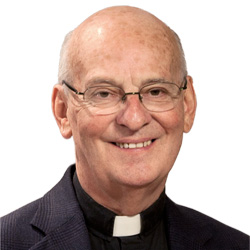You were meant to be a missionary
 In early memory from Manchester, England: two priests, on leave from Africa, holding me spellbound. They’re larger than life, they have wonderful stories and are the happiest people imaginable. They are foreign missionaries. I would give anything to be like them. A later mid-life memory from Chicago: two men on a street corner, addressing me with just enough arrogance and condescension to irritate and offend me equally. They are quite joyless and judgmental. They are street missionaries. I do not want to be like them at all.
In early memory from Manchester, England: two priests, on leave from Africa, holding me spellbound. They’re larger than life, they have wonderful stories and are the happiest people imaginable. They are foreign missionaries. I would give anything to be like them. A later mid-life memory from Chicago: two men on a street corner, addressing me with just enough arrogance and condescension to irritate and offend me equally. They are quite joyless and judgmental. They are street missionaries. I do not want to be like them at all. What if and why not
The word missionary conjures up opposites: noble souls from distant places with rich experiences, and fierce zealots with wild-eyed fanaticism and moralizing self-importance. People with a mission march to a different drummer: they are convinced of the importance of something greater than themselves—golf or macrobiotic food perhaps, or God or the Marines—and they want others to be caught by the same fire that burns in them; they feel their message is urgent and their time is short; and they are carried on the wings of enthusiasm, leaving other people to stare, to scratch their heads, or simply to wonder. But once in a while, the missionary encounter mesmerizes, inspires, and changes lives.
There’s also something ambiguous about missionaries: they don’t seek the comfortable centers or pursue rational ambitions. They glimpse what might be, and ask questions that most people avoid: they wonder, “what if?” and ask, “why not?” They want to change the world. They can be dangerous and destabilizing if you get too close: perhaps that’s why so many people keep their distance!
Churchill once called Russia “a riddle wrapped in a mystery inside an enigma.” That’s not a bad description of Christianity—and mission is at the heart of it all. A God of love and justice in a world of hatred and injustice is an enigma; that God should take us seriously and become one of us is a mystery; the claim that love is stronger than death is a riddle. But Jesus is love and justice in a world of hatred and injustice: in him the enigma is resolved. Jesus is incarnate: in him the mystery was made flesh and dwelt among us. And Jesus is the love stronger than death: in him the riddle is solved once and for all on Easter morning.
Pass it on
Missionaries should be bursting with joy, hope, and compassion—and good news, not just for themselves but for anyone in the vicinity. Missionaries should be fuelled with caritas—the love of God, “not our love for God, but God’s love for us” (1 John 4:10). That’s what ought to fill the heart of a missionary. If it did, we would experience the greatest revolution in history, because every Christian has missionary potential. Imagine if even one tenth of Christians in America (that’s more than 6 million) worked to replace hatred by love, self-interest by altruism, coldness by compassion, and avoidance by encounter.
That’s what the missionary call of Baptism invites each of us to. If we believe the well-kept secret (that God in Jesus is richly relevant, even to those who don’t yet know), then we must publicize it: pass it on. We must not develop a private “me and God” spirituality or turn our lives inward; we must promote a public “God and all humanity” spirituality and turn our lives inside out. That’s what God’s Spirit sent Jesus to do and we are baptized with the very same Spirit.
What did Jesus do?
We don’t have a mission: the mission has us. This makes sense if we understand that the initiative belongs with God. Jesus is God’s mission literally brought down to earth. Christianity is God’s mission continued in Jesus’ followers. Every true Christian is a missionary, and a true missionary does what Jesus did: he never threatened or used force or fear, though he certainly disturbed people. Jesus declared that his message was actually God’s own liberating, healing, reconciling word: that’s Good News. Jesus was commissioned by God to touch lives.
Some of those he touched became followers, later called Christians. They were agitated and excited by his words of justice and healing for all. Because he went to the margins, he gathered followers among the marginal. Because he challenged those at the center, he made enemies among the comfortably complacent. Because he called for justice and redistribution, and blamed respectable people who did nothing, he antagonized many. Because he spoke about service as true leadership, love of neighbor as true Godliness, and laying down of life as true love, he became an embarrassment. Those with the missionary spirit of Jesus should expect nothing else.
Good news for the poor
Two scriptural texts illustrate the mission of Jesus. One shows Jesus telling others what to do and where to do it: “Go, teach all nations” (Matt. 28:19-20). The other shows Jesus describing himself and his mission: “The Spirit of the Lord has been given to me, for he has anointed me. He has sent me to bring the good news to the poor, to proclaim liberty to captives and to the blind new sight, to set the downtrodden free, to proclaim the Lord’s year of favor” (Luke 4:18-19). These are two faces of mission. Mission is not simply going far away to preach the gospel and extend the church. Mission is also encountering the poor and needy at our doorstep and bringing them vision, hope, and God’s abiding love. Jesus was never inflexible, fanatical, or authoritarian, but flexible, even-tempered, and compassionate: Jesus was the true missionary.
Every true missionary does what Jesus did. Jesus was hardly programmatic but was always purposeful: he did not pursue a rigid three-year plan but went about looking for trouble and attending to troubled people’s needs. He made a difference: fed hungry spirits and empty bellies; gave voice to the mute and sight to the blind; stood with the broken, lifted the fallen, embraced the abused. Jesus’ mission was restoration. And he promised that his followers would do the same, and “even greater things” (John 14:12).

Evangelization is the technical word for what Jesus did, but its meaning has been distorted so that many Christians are actually repelled by it. It does not mean converting people to Christianity or extending the Catholic Church. It means doing what Jesus did: attending to people’s needs, nourishing, healing, setting free, humanizing. It has four components: proclamation, witness, dialogue, and liberation.
Evangelization must not be reduced to a single component and has been wrongly identified with proclamation. Proclamation speaks the truth about Jesus and his promises: always with respect and never with pressure. Witness ensures the convergence between the message we proclaim and the lives we live: it is faith, hope, and love in action. Dialogue is a corrective to bombast and windy monologue: it requires equal partners, and accepts that the outcome cannot be known or contrived by one party. Liberation is whatever frees people from inhuman and undignified burdens: humiliation, oppression, addictions and the rest.
Each component is a constituent of evangelization, which is Kingdom-centered before it is church-focused. Jesus proclaimed the Kingdom. Wherever two or three are working for God’s justice, there is the Kingdom, there is mission. But mission is not limited to what Jesus did: he called and sent others to make a difference. Which brings us back to our own call and commission.
Me, missionary
Should we avoid the word missionary because it evokes self-righteousness and street corners, or embrace it because it bespeaks integrity and human dignity? We might repudiate it because we recall embarrassing missionaries or rehabilitate it because it is at the heart of our faith. Bogus missionaries are full of their own good intentions; real missionaries are full of God’s infectious love. Counterfeit missionaries destroy; genuine missionaries disturb, but bring hope. Mission is never legitimate if it uses fear or force.
Mission is never misplaced if it changes enemies into friends. In my own life, the two African missionaries never really left me. I joined the same community and served in Africa myself. Now I’m in Chicago, and my mission is among the homeless poor. What I do is both structured (I cook and serve a meal for 50 people at a women’s shelter every Wednesday) and unstructured (I hang out on the streets looking for people who are hungry or in trouble, and gather a history of homeless women). My mission is not to put people in church but to be with them as God’s kingdom continues to break through. It’s still a mystery to me but life-giving to try to encounter the face of God in every face I see.
Tags
Related
- African dream: my 17 years in Kenya
- Lessons in love from central Brazil
- Missionary sister falls in love
- Sister Dorothy Stang: Her dying shows us how to live
- Refugee crisis 'a battle for our humanity' in Jordan
- Fighting gangs one youth at a time
- Starting over from scratch
- My mission: To be an instrument in God’s hands
- Beginning again in Ireland
- And Jesus said, “Feed my lambs.” Read More
Most Viewed
- Find your spirituality type quiz
- FAQs: Frequently asked questions about vocations
- Celibacy quiz: Can you live a celibate life?
- Resources for older discerners or those with physical and developmental differences
- About Vocation Network and VISION Guide


